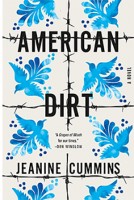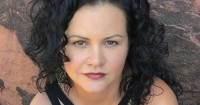
Our Books, Our Shelves: BE A QUITTER, or HOW TO WRITE THE NOVEL OF YOUR HEART
themarysue.com – Tuesday March 24, 2020

Sometimes, you quit.
Quitting isn’t something we’re taught to do, especially not as writers. Established authors share stories of rejections and perseverance. Of the manuscript they refused to give up on. That they published to great acclaim and poo-poo on those editors who rejected them! It’s supposed to inspire—and goodness knows we need all the inspiration we can get in this field.
When I was in graduate school, I started writing my first novel. A novel that my mother recently retrieved from the depths of her house, printed and spiral bound. “In five years, we can put that on eBay,” my dad said, while fixing himself a burger. “Absolutely not!” I said. Probably should’ve snatched it from Mom when I had the chance. (Please, if in five years you see an eBay listing titled “K M SZPARA UNPUBLISHED MANUSCRIPT RARE,” report it.)

How to publish a book: The publishing process, explained
goodhousekeeping.com – Saturday March 14, 2020

You've had the killer idea, you've developed your book characters, planned and plotted, and found the motivation to finally write the novel you've always dreamed about.
You may even have found an agent. But when it comes to a publishing a book, how does the industry actually work?
There are so many stages, so many edits and buzzwords - it can feel impossible to navigate. Before my first novel, Five Steps To Happy, came out last year, I felt utterly lost, confused about the role of an editor and full of questions about the publishing process.
If you feel the same, fear not. In this piece I'll explain the publishing industry, rounding up the people who know to answer the most common questions about writing a book.

How to publish a book: Finding an agent
goodhousekeeping.com – Saturday March 14, 2020

Publishing a book can feel like a minefield. There are so many ways to go about it - from the traditional agent and publisher route, to entering writing competitions to self publishing.
Before my first book, Five Steps To Happy came out last year, I was pretty much clueless as to the process. I took a 3 month novel writing course with Curtis Brown Creative, which offered a valuable insight into how the industry works.
A couple of years (and a lot of rejections) later, I signed with literary agent Richard Pike, at C&W, Curtis Brown's sister agency. My novel was bought by Trapeze, an imprint of Orion - and my dream came true.
Going through the process first-hand, I've gained a lot of useful knowledge. Burning questions about where an agent fits in with publishing a book? Read on!

A twist in the tales: Ahead of World Book Day, publishers and authors reveal why children still prefer page-turners to pixels
sundaypost.com – Tuesday March 3, 2020

Despite children often being apparently glued to their screens, it seems they really love nothing more than a good read, with sales of kids’ books in the UK climbing 15.5% in a decade.
The industry, worth £290 million in 2010, netted £335m last year.
A decade ago, with the rise of ebooks, there was a fear that children’s books sales would plummet, but Publishing Scotland’s marketing manager, Vikki Reilly, says it has been one of the least affected sectors.

This Is What 300 Writers Say Made Them Successful
entrepreneur.com – Sunday March 1, 2020

Red Smith, a legendary sportswriter, was once asked if it was hard to write his daily column. “Why no,” he said. “You simply sit down at the typewriter, open your veins, and bleed.”
Any person who’s ever tried to string a bunch of words together and make them sound interesting can feel Smith’s pain. Writing is brutal — and writing for a living can feel like you’re Jack Nicholson in The Shining typing the same sentence over and over again.
And we all know how that turned out.
On my podcast, Write About Now, I interview writers of all types — novelists, journalists, screenwriters, showrunners, and business gurus — about how they stopped bleeding, started writing, and landed at the top of their profession. I launched the show two years ago and during that time I’ve done a deep dive into the techniques and tactics of over 300 successful scribes. After a while, I noticed some common themes start to rear their poetic heads. Call them writer hacks, but just not the type that draw blood. Here are six things successful writers do.

Ways to Describe
By G. Miki Hayden
Instructor at Writer's Digest University online and private writing coach
firstwriter.com – Tuesday February 25, 2020

One important job of the author is to describe what the reader can’t see (smell or taste, etc), and that includes a description of the point of view character even if the novel is in first person; descriptions of other characters from the first person character’s point of view; and descriptions of the setting, both the macro setting (the city, for instance, but maybe the neighborhood and/or the house) and the micro setting (such as the home interior or a room in the house). Not to mention everything else, the dinner, the restaurant, the music, the crowd, the scent in the air, well everything...
More city, less village
thebookseller.com – Saturday February 22, 2020
Last month at the Association of Authors’ Agents (AAA) a.g.m., I stepped down from AAA Committee after six years, the last two in the role of president. I am proud to have worked for a trade association whose value for its members is unquestionable. I am not referring to our informative or social events, or our advocacy for agents and authors to publishers and in the public sphere, though they are great. Rather, to the fact that —because any cowboy can call themselves a literary agent—membership of the AAA is the only simple way for an agent to convey their seriousness and reliability as a professional. All our agencies commit to abide by our Code of Practice and its associated guidelines, you see.
Beyond that joint commitment, and our fiduciary duty to put our clients’ interests first, the AAA is a pretty broad church in many enjoyable ways. But although many AAA members are actively engaged in the project of making our profession more inclusive, we are still an undeniably white, middle-class group, for the most part.

How to be a film writer
source.wustl.edu – Sunday February 9, 2020

Joey Clarke, AB ’07, moved to Los Angeles after graduation in hopes of making it as a film writer. He worked a variety of low-level jobs but admits he didn’t put the effort he needed into writing. A relationship and a change of scenery helped kick-start his film writing career, and in 2018 he won the Academy Awards’ Nicholl Fellowship in Screenwriting for his script Miles. Here, he shares some tips about what has worked for him and how writing for film is — and isn’t — the same as other types of writing.

Publishing's 'American Dirt' Problem
publishersweekly.com – Saturday February 1, 2020

Ask someone who works in publishing what they think of American Dirt and they might tell you they’re not the best person to speak to the situation. Or that they haven’t read the novel. They might directly reference their privilege, then suggest you ask one of the handful of Latinx people who edit or sell books.
This was the reaction from myriad publishing professionals when questions were put to them about the latest controversy that has engulfed their business.
Two weeks ago Jeanine Cummins’s novel, about a bookseller from Mexico who flees to America with her son in tow to escape the local drug cartel, was a bestseller-in-waiting, riding a wave of critical support to its January 21 release date. Now it is a cultural lightening rod, and its author is at the center of a complex debate about power, privilege, and who should be given a platform to tell what stories. Though many insiders say they welcome the conversation that the book’s publication has inadvertently raised—about which books the industry chooses to elevate, and whether it’s properly equipped to champion the work of diverse voices—they’re stunned at the aggressive turn the debate has taken. And, even if they won’t say so publicly, they admit feeling sorry for Cummins who, as an author, should not have to answer for the shortcomings of the publishing industry as a whole.

‘American Dirt’ was supposed to be a publishing triumph. What went wrong?
latimes.com – Sunday January 26, 2020

It was poised to be a blockbuster long before copies arrived in bookstores last week: a thrilling contemporary migration story following a mother and her son, desperate to cross Mexico and reach the United States.
Its publisher, Flatiron Books, an imprint of Macmillan, paid a seven-figure advance after outbidding several competitors for the novel. It snagged a coveted selection in Oprah’s Book Club and had been shipped to key celebrity influencers, including Stephen King, Sandra Cisneros and Salma Hayek. A reported first run of 500,000 copies was printed. The film rights were sold.
But by week’s end, the novel “American Dirt” had garnered attention that its boosters likely didn’t expect: angry charges of cultural appropriation, stereotyping, insensitivity, and even racism against author Jeanine Cummins, who herself said in the book’s author’s note, “I was worried that, as a nonmigrant and non-Mexican, I had no business writing a book set almost entirely in Mexico, set entirely among migrants.”
Despite the backing of towering figures in American media, Cummins’ page-turning portrayal of a mother on the run is now at the center of the first bonafide literary controversy of the year, and is forcing a hard reflection on the state of Latinos in a cultural field that remains overwhelmingly white.
Get the free newsletter | Submit a news item or article | Get Writers' News for your website





